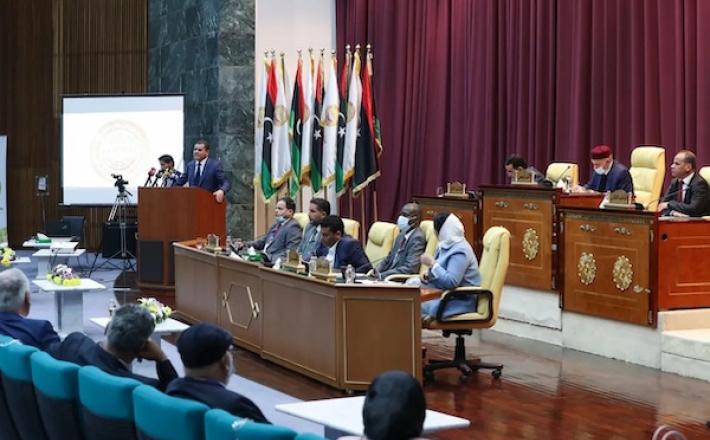Why does Libya's incoming government have only two female ministers?
Source: MEMO
On 1 March, Libya's Tobruk-based Parliament voted in a new cabinet led by former Interior Minister, Fathi Bashaga, and its 29 ministers, six State Ministers and three Deputy Prime Ministers have all taken their constitutional oath. However it is unclear if, and when, the new government will take office in Tripoli as the outgoing Prime Minister, Abdulhamid Dabaiba has, repeatedly, said that he will only hand over power to an elected government. He accuses the Parliament that voted him in earlier this year, of being illegitimate.
Notably the new government has only one female Minister, Salha Al-Drouqi, who is to take over the Ministry of Culture, and another State Minister for woman affairs. Compared to the outgoing cabinet, which had five women ministers, this is far from women empowerment and gender equality in the country's difficult transitional period.
Click here to read the full article published by MEMO on 10 March 2022.

On 1 March, Libya's Tobruk-based Parliament voted in a new cabinet led by former Interior Minister, Fathi Bashaga, and its 29 ministers, six State Ministers and three Deputy Prime Ministers have all taken their constitutional oath. However it is unclear if, and when, the new government will take office in Tripoli as the outgoing Prime Minister, Abdulhamid Dabaiba has, repeatedly, said that he will only hand over power to an elected government. He accuses the Parliament that voted him in earlier this year, of being illegitimate.
Notably the new government has only one female Minister, Salha Al-Drouqi, who is to take over the Ministry of Culture, and another State Minister for woman affairs. Compared to the outgoing cabinet, which had five women ministers, this is far from women empowerment and gender equality in the country's difficult transitional period.
Click here to read the full article published by MEMO on 10 March 2022.